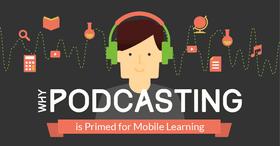I wrote this article and its companion Leave No Evidence! because I have long been concerned that my colleagues in the classroom are not as street smart with social media as they need to be. I am focusing on the use of Facebook here. However, much of what I have to say applies to the other social media apps such as Instagram and Twitter.
When you use social media, be aware of the following:
- Your posts are forever.
- Your posts can be forwarded outside your circle of friends.
- Your comments can be forwarded outside your circle of friends.
- Your following of people and groups is visible.
Your posts are forever.
As part of my research for this article, I googled "teacher fired for posting on Facebook" and got 2,602,000 search results. Well, not all of those search results are relevant, but you get my point. My warning is simple and very clear: if you are employed by a school or would like to be, do not post anything on Facebook which could be misinterpreted by your present or future employer. The issue is not freedom of speech. The issue is electronic media. It is everlasting.
Now, let me be more specific about what to post and what not to post. Birthday and anniversary greetings are appropriate. Nasty, intolerant comments are not appropriate. News about family gatherings and activities are appropriate. Photos of a family gathering or your 3-month-old eating carrots are appropriate. Ranting about how much you hate your head of school is not appropriate. Before you click the Post button on Facebook, take a few seconds to ask yourself if your post could come back to bite you. If there is even the slightest chance that it might, don't post! Really, it is that simple.
Your posts can be forwarded outside your circle of friends.
Expect anything which you post on Facebook to be shared. Your posts can also turn up in Google search results. Your posts can be used against you by people who don't like you. That can happen even when you didn't give them explicit permission to do so. In fact, because you posted on Facebook, you did give them permission to share your post. That's how Facebook works.
Your comments can be forwarded outside your circle of friends.
It is naive to assume that your comments on your friends' Facebook posts will not be seen by people outside your circle of friends. Expect them to be forwarded, because they will be.
Your following of people and groups is visible.
You name will be visible every time you Like or Follow somebody or join a Group on Facebook. While Facebook does have Privacy Settings which you can tweak, it is easy to forget to review those settings on a regular basis. Set a reminder and take care of that task once a month or as necessary.
So against this sobering backdrop, let's explore some of the steps which you can take to protect yourself when using Facebook.
1. "But my privacy settings were ultra-strict."
Well, you thought your privacy settings were locked down. And that's understandable. After all, you only wanted to share your information with your friends and family. But remember: once you post something on Facebook, it's out there. It's no longer private. If one of your 'friends' decides to forward that photo of you holding a glass of wine on your 30th birthday, that simple act of sharing could end up costing you your job. It has done that for several teachers, according to news reports which I found.
It's not only photos which can get you in trouble. It's your comments about your work and/or your students. If you want to self-destruct, then, by all means, post a comment like "My students' parents are arrogant snobs." That fuse will take only a few hours to ignite the bomb. You can achieve the same effect by posting a racial slur or making a derogatory remark about a religious sect, political party. or somebody's sexual preference.
2. There is a wall between teachers and students.
You are both an exemplar and a guide in your professional life as a teacher. That's why there has to be a wall between you and your students. That wall exists for a great many good reasons. It's part of the way the relationship between teacher and students must be handled. You can encourage. You can praise. But you must never ever friend. Period. But that fundamental rule also applies to Facebook. You don't 'friend' your students on Facebook until they are 'ex-students.' Even then, keep things just as proper and professional as they were when that student was a member of your class. Also, it just makes sense not to seek out your old students. They know where you are. If they want to stay in touch via Facebook, they will.
And the big No-No: do not flirt with students. Period. In school or out of school. On Facebook or off Facebook.
3. Facebook posts last and last and last.
One of my young friends had a Facebook site replete with hundreds of photos of him traveling the world in his undergrad days. Plenty of scenes showing new found friends sharing a glass of beer. But the minute he became serious about his doctorate and the career he planned once he obtained that degree, the Facebook pages came down. He hopes. The problem is that he's only safe as long as somebody didn't save some of those photos. Or forward them.
Google caches everything. Forever. If somebody knows what they are looking for, they will find it. Make sure what they find is squeaky clean. Be ultra professional. Why? Most private schools have social media use policies in place which govern
My mother used to counsel us very simply: "If you can't say something nice, then don't say it at all." That's good advice which you can apply to all your social media communications
Bottomline: Do like we do at The Classical Station where I host a weekly program and curate the social media. We have a simple rule at the station: if we can't say it on the air, then we cannot say it in our conversations at the station. Simple. Clear.
Questions? Contact me via Twitter. @privateschoolreview






















